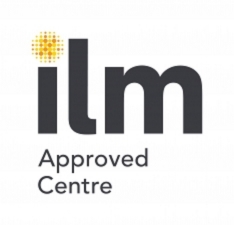ILM Level 2 Certificate in Team Leading Course Outline
Total CV: 15
Unit 1: Developing Yourself as a Team Leader 8002-250
CV: 1
Module 1: Understand the Role and Responsibilities of the Team Leader
- Role of the Team Leader
- Functions and Responsibilities of the Team Leader Within the Team
- Limits of the Team Leaders Authority and their Accountability
Module 2: Be Able to Seek Feedback on their Workplace Performance to Identify Strengths, Weaknesses, and Areas for Improvement
- Personal Skills and Abilities for Effective Team Leading
- Using Reflective Learning Skills to Improve Performance
- Areas of Strength and Possible Improvement
- Gather Feedback on Own Performance from Different Sources
- Receiving and responding positively to feedback
- Interpret the Feedback and List Areas for Improvement
- Prepare an Action Plan to Address Weaknesses and Improve Performance
Unit 2: Improving Performance of the Work Team 8002-251
CV: 1
Module 3: Understand the Organisation’s Requirements in Relation to Team Performance
- Organisations Requirements of the Team in Line with Company Policy
- Teams Objectives in Achieving Organisational Targets
- How the Individual Performance of Team Members Affects the Overall Performance of The Team?
Module 4: Understand How to Address Underperformance
- Identify Indicators of Under-Performance in Relation to Own Team
- Possible Causes of Under-Performance
- Ways to Identify Areas of Concern or Under-Performance
- Extent of Team Leader’s Authority to Address Performance Problems Within Organisation’s Policies and Procedures
- Interpersonal Behaviour and Its Impact
Module 5: Understand the Role of Motivation in Improving Performance
- Recognised Theory of Motivation
- Actions to Motivate Own Team and Improve Performance Linked a Theory of Motivation
- Simple Motivation Models at Work
- Using Rewards (Behavioural) and Positive Feedback to Optimise Performance
Unit 3: Planning and Monitoring Work 8002-252
CV: 2
Module 6: Understand How to Work Within the Organisational Guidelines to Achieve Team Goals
- Role and Purpose of Objectives and Targets
- Setting SMART Work Targets to Meet Customer Specifications and Organisational Requirements
- Causes of Conflict and Incompatibility Between Targets/Objectives in the Workplace
- Distinction Between Policies and Procedures
- Working According to Organisation’s Objectives, Policies, Procedures, and Priorities
Module 7: Understand How to Plan and Allocate Work
- Key Stages When Planning and Allocating Work
- How Work is Allocated to Meet Team Objectives?
- Check Team Members are Understand their Allocated Work
- Importance of Knowing Individual Team Members’ Strengths in their Work Roles
- Simple Techniques for Scheduling Work
- Effective Methods of Communication to Give Instructions and Achieve Performance Standards
Module 8: Understand How to Monitor a Team’s Performance Against the Plan
- Method to Monitor the Teams Performance Against the Plan
- Action the Team Leader Could Take to Rectify Underachievement Against the Plan
- Methods to Monitor Actual Performance
- Ways to Ensure Team Members Understand Monitoring Systems
- Recording Outputs/Variances/Actions
- Types of Quality Standards and Their Purpose
- Quality Checks/Inspections Vs Standards
- Taking Remedial/Corrective Action
- Progress Chasing
- Effective Reporting Back to Manager
Unit 4: Briefing the Work Team 8002-264
CV: 1
Module 9: Understand How to Plan for a Team Briefing
- Aim of the Team Briefing
- Needs/Expectations of the Team Prior to the Briefing
Module 10: Be Able to Deliver a Team Briefing
- Conduct a Team Briefing Effectively Responding to any Enquiries During/After the Team Briefing
- How to Ensure the Team’s Understanding of the Team Brief?
Module 11: Be Able to Report Back on a Team Briefing
- How Outcomes of the Briefing can Be Reported Back to Management?
- Checking Understanding
- Reporting Back to Management
Unit 5: Leading Your Work Team 8002-268
CV: 2
Module 12: Understand the Difference Between Leadership and Management
- Difference Between Leadership and Management
- Why Leadership is Important Within Own Team
Module 13: Understand a Range of Leadership Styles, their Benefits and Potential Impact on Individuals and Performance
- Different Leadership Styles
- Commonly Used Leadership Styles Within an Organisation
- Effect This Leadership Styles has on a Team’s Performance
- Leadership Style and Its Potential Impact on a Team
Unit 6: Understanding Effective Team Working 8002-276
CV: 1
Module 14: Understand Effective Working Teams
- Characteristics of an Effective Team and the Advantages of Working in a Team
- Possible Barriers to Effective Team Working
- Possible Effects of Identified Barriers on the Team
- How to Create and Maintain an Effective Team
Unit 7: Solving Problems and Making Decisions 8002-300
CV: 2
Module 15: Know How to Describe a Problem, Its Nature, Scope, and Impact
- Problem, Its Nature Scope, and Impact
- Ways to Recognise, Define, Investigate, and Analyse Problems
- Objective Setting in Relation to Problem
- Brainstorming, Problem Solving, and Creative Thinking Techniques
Module 16: Know How to Gather and Interpret Information to Solve a Problem
- Gather and Interpret Information to Identify Possible Solutions to a Problem
- Difference Between Data and Information
- How to Calculate and Use Simple Averages and Basic Summary Statistics?
- How to Prepare and Use Grouped Data and Tables?
- Interpretation of Charts and Diagrams
Module 17: Know How to Evaluate Options to Make a Decision
- Apply A Simple Decision-Making Technique to Evaluate Options to Arrive at the Best Solution
- Importance of Adequate and Relevant Information for Effective Decision-Making
- Identification of What Information is Relevant to Specific Decisions
- Decision Making Techniques
Module 18: Know How to Plan, Monitor, and Review the Implementation and Communication of Decisions
- Plan the Implementation and Communication of the Decision
- Which Monitoring and Review Techniques Could Be Used to Evaluate Outcomes?
- Monitoring and Review Techniques to Evaluate Outcomes of Problem-Solving Activities
Unit 8: Understanding Leadership 8002-308
CV: 2
Module 19: Understand leadership styles
- Factors to Influence the Choice of Leadership Styles or Behaviours in Workplace Situations
- Why Leadership Styles or Behaviours are Likely to Have a Positive or Negative Effect on Individual and Group Behaviour?
Module 20: Understand Leadership Qualities and Review own Leadership Qualities and Potential
- Assess Own Leadership Behaviours and Potential in Context
- Appropriate Actions to Enhance Own Leadership Behaviour in the Context of the Particular Leadership Model
- Role of Trust and Respect in Effective Team Leadership
Unit 9: Understanding Conflict Management in the Workplace 8002-312
CV: 1
Module 21: Understand Conflict Management in the Workplace
- Causes of Conflict at Work
- Stages in the Development of Conflict
- Effects of Conflict on Individual and Team Performance at Work
- Technique a Manager Could Use to Minimise and Resolve Conflict in the Workplace
Unit 10: Understanding Stress Management in the Workplace 8002-313
CV: 1
Module 22: Understand How to Support Individuals in the Team and Minimise Stress in Others
- Causes and Impact of Stress in the Organisation
- Symptoms of Stress in Self and Others
- Practical Stress Management Techniques
Module 23: Understand How to Monitor a Team’s Performance Against the Plan
- Management Responsibilities and Actions in Relation to Work-Related Stress in the Team
- How and When to Provide Advice, Mentoring, and Counselling to Support Individuals in the Workplace?
- Principles of Counselling
- Mentoring and the Mentoring Cycle
- Range of Available Counselling and Support Mechanisms
- Implications of Confidentiality
Unit 11: Understanding Discipline in the Workplace 8002-314
CV: 1
Module 24: Understand the Legal Aspects and Organisational Policy Relating to Discipline in the Workplace
- Legal Aspects of the Disciplinary Process
- Identify an Organisation’s Employment Policies and Procedures that Could Guide the Manager in Dealing with Disciplinary Issues
Module 25: Understand How to Monitor Discipline in the Workplace
- Purpose of Disciplinary Procedure
- Identify the Interpersonal Behaviour and Support Skills Required by Manager to Monitor Discipline in the Workplace
- Interpersonal Behaviour and Support Skills to Maintain Discipline at Work
- Records and Other Means to Support and Monitor the Disciplinary Process









































 Back to course information
Back to course information




 If you wish to make any changes to your course, please
If you wish to make any changes to your course, please

